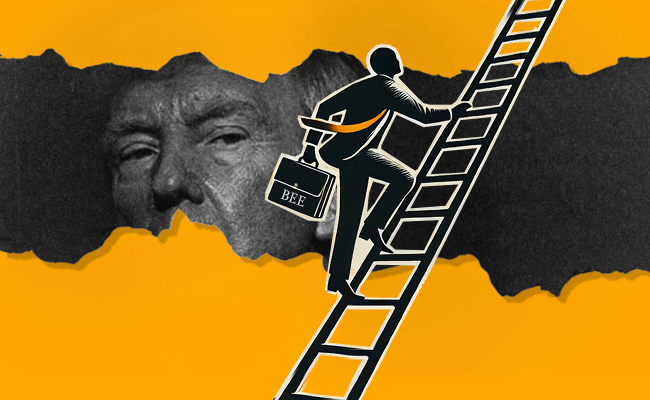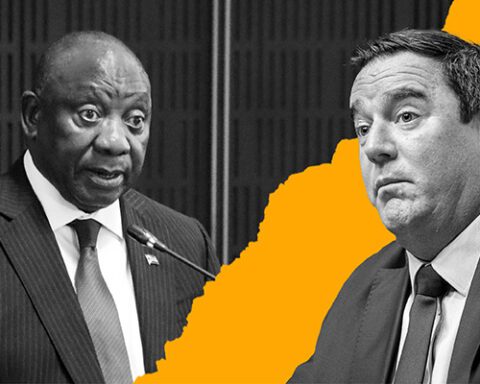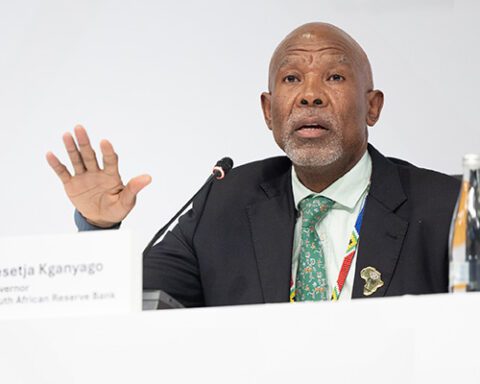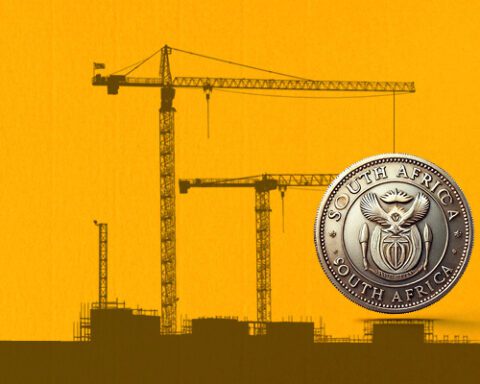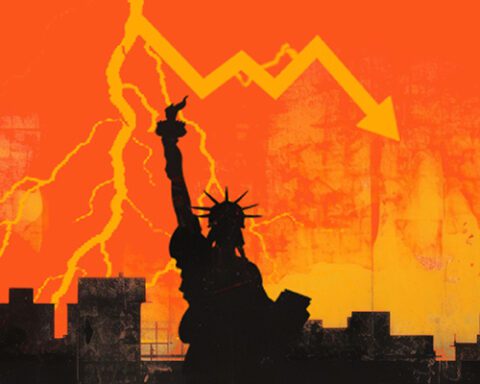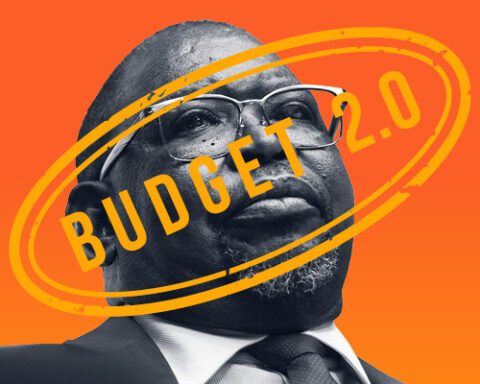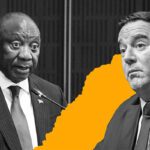Donald Trump’s – and now US secretary of state Marco Rubio’s – tongue-lashing against race and gender-based hiring policies is likely to put renewed scrutiny on South Africa’s transformation laws, raising questions about their implementation and effectiveness.
The US president’s stance comes amid mounting domestic criticism of broad-based BEE (BBBEE). Even the nation’s legal profession is fighting back, with one of the biggest law firms in the country, London-headquartered Norton Rose Fulbright, challenging the constitutionality of rules thrust on the industry.
The US president banned diversity, equity and inclusion (DEI) programmes for the federal government as he started his second term. His attention then turned to South Africa this week, when he made baseless allegations that the country was confiscating land, adding that it is “treating certain classes of people VERY BADLY”.
“Why should he tolerate it in South Africa if he does not tolerate it in his own country?” political analyst Ralph Mathekga tells Currency. “Empowerment is being criticised even locally and across racial lines.”
Trump wants to restore merit-based opportunities to the US, while driving the charge against South Africa is Elon Musk, the Pretoria-born billionaire now heading the US government’s efficiency office. The world’s richest man has emerged as an influential force in Washington, thanks, no doubt, to the $200m he reportedly spent to help get Trump into office.
And for Musk, it is about race, and it is personal, partly because South Africa’s transformation drive is standing in the way of his business interests in the country.
BBBEE laws won’t allow the Tesla and SpaceX founder to launch his Starlink broadband-by-satellite service in South Africa, given that he’d have to hand over 30% of the local business to Black people.
“Why do you have openly racist ownership laws?” Musk asked President Cyril Ramaphosa on X this week, having long been on the anti-affirmative action bandwagon. In December 2023, he posted on his social media platform X that “DEI must DIE. The point was to end discrimination, not replace it with different discrimination.”
A hard line
So, will the ANC concede? For now, the opposite looks true: in January, for example, trade, industry and competition minister Parks Tau proposed a R100bn Transformation Fund, to be paid for by the private sector, to support Black-owned businesses.
This has already garnered much criticism from many quarters, including the ANC’s partner in government, the DA, which sees it as another tax, and a further avenue for corruption.
(The DA opposes BBBEE, saying it is the “glue” that keeps the “faction-riven” ANC from falling apart because it feeds its coffers. It has also failed in its objective to “enhance the economic participation of Black people” in the economy. The party instead proposes an “economic justice” policy, which it says will target poor Black majority areas, won’t allow the state to buy services or goods at inflated prices and will break down barriers to economic growth and investment.)
Business Unity South Africa, the Institute of Race Relations, labour associations and other business organisations have also kicked against the idea of a fund, with the Association of Business Chambers saying: “It is hard to imagine a less investment-friendly intervention than the Expropriation Act, with the Transformation Fund not far behind in terms of business appeal.”
Yet in 2022, Ramaphosa pledged that BBBEE initiatives would only intensify, not diminish.
Mathekga sees the ANC’s efforts with the recent signing of the Expropriation Act, the Transformation Fund, and Ramaphosa’s signing of the National Health Insurance Act as the moves of a dying party seeking to “retain control of the population” by pushing populist policies that have failed to make a difference in the lives of most ordinary South Africans.
For example, the state capture commission of inquiry led by judge Raymond Zondo found reams of evidence where BBBEE had been abused for the misallocation of contracts. Mismanagement and corruption contributed to the near collapse of state-owned companies like Eskom and Transnet.
“People aren’t saying cancel BBBEE, they’re saying reform it,” Mathekga says. “Transformation of society is complex. It will need compromises … but these also need to be justified.”
Trump’s constituency has clearly given him a mandate and he will gain support for the drive towards appointing people on merit rather than considering race or gender first, Mathekga notes.
There could, however, be “unintended consequences” here at home were ANC leaders, say, to rile up supporters and rally them behind what they would argue is an “imperialist” agenda to force “regime change”. This could result in populist parties – like the EFF and MK – coalescing around the ANC and the idea that South Africa’s sovereignty is under attack.
Mathekga argues that South Africa has long “mishandled” the opportunity to implement empowerment for the benefit of more, rather than a small elite. It certainly hasn’t helped make a dent in the 36% unemployment rate faced by Black South Africans, compared with 8% for whites.
‘Transformation takes will’
Jonathan Mark Hoskins, who teaches political philosophy and South African politics at the University of the Western Cape, says Black empowerment perpetuates inequality by creating Black capitalists who exploit the Black working class.
Citing figures from the Institute for Race Relations, Hoskins points out that inequality within the Black African population remained stable between 2003, when the BBBEE Act was promulgated, and 2014. In 2024, however, inequality within the Black African community increased.
This unwavering commitment to capitalism, the creation of a “patriotic bourgeoisie”, the “grooming of Black industrialists”, “expanding the entrepreneurial base”, the belief in “capitalism with a human face not underpinned by greed”; and, the production of “African capitalists” contradicts the claim that BEE empowers all Black people, he wrote in an op-ed published on the university’s website last year. Those quotes were from the SACP’s Blade Nzimande, former trade and industries minister Rob Davies and Ramaphosa.
In an interview with News24 last year, political economist Moeletsi Mbeki described BBBEE as a “parasitic club that is parasitic on existing businesses, but it’s creating no new enterprises, which is why we have such high unemployment in this country”. He asserted that it keeps big businesses happy because there’s no new competition.
By losing its majority in last year’s elections, the ANC’s policies, including BBBEE have been rejected, he told the publication. The state should sit down with the financial sector and find ways of funding entrepreneurs without looking at race, he said.
BBBEE’s failure to advance African Black people is further evident in the financial services industry. According to a report released last year by the Association for Savings and Investment South Africa, asset managers missed all their employment equity targets in 2022, with roles still dominated by white men.
While Black people accounted for 41% of senior management roles in 2022, when broken down, Black Africans only made up 13% of overall jobs in the C-suite, against a target of 52%. In middle management, they constituted 18% of the total, short of the 65% target. Black Africans and Black women in junior roles fell.
While many argue there is a lack of skills among Black South Africans, given historical inequality in education – and the present dire state of education outcomes in the public sector – one Black CEO in the financial services sector tells Currency that if a company “wants to transform, it will. It takes will. It’s a process. It takes time.”
Black ownership of companies stood at less than 30% in 2022, according to the BBBEE Commission. That was despite more than 500 BBBEE deals worth more than R600bn reported to the commission since 2017.
The Trump factor
Yet for Izak Odendaal, the chief investment strategist at Old Mutual Wealth, Trump’s end game is not BEE at all, nor about the economic benefits the US can gain from South Africa.
“We’re a rounding error in terms of overall American trade,” he tells Currency, adding the US “might miss platinum group metals” because South Africa is the biggest producer. “Whereas for us, they’re a very big export market and a very big source of foreign direct investment. So, it’s absolutely in our interests to keep this relationship open.”
Instead, the issues here “are mainly political”, and come ahead of South Africa’s hosting of the G20 summit in November. On the agenda, for example, is climate change, which Trump has rubbished, amid calls for more sustainable development financing for Africa.
While there isn’t much South Africa can offer Trump economically, there is still a lot that we need from the US – including access to its markets under the African Growth and Opportunities Act (Agoa).
In 2024, according to the South African Chamber of Commerce in the US, South Africa exported more than $6.5bn worth of goods to the US, supporting key industries such as automotive manufacturing, agriculture, and mining. “The potential revocation of Agoa benefits would significantly impact South African businesses, leading to job losses and economic instability,” it said.
Right now, it doesn’t make sense for South Africa to pivot towards other partners in the Brics group of nations, such as Brazil, India or Russia, given that trade with those nations is small, India is protectionist and playing a fine balancing act between the US and China, and Russia is in a protracted war with Ukraine.
Odendaal believes South Africa should be able to make up for trade with the US in the event it loses its preferential status. Trump will, however, use it as leverage if he thinks it’s worth his time and effort.
On whether US pressure could force the ANC to relent on empowerment policies, Odendaal isn’t convinced. “I don’t think it will move the needle much. But it might lead to a debate about how to improve empowerment policies. I don’t see this as being a massive thing for Americans; for us, empowerment is an important issue given our history,” he says. “And Musk, obviously, he has his own personal business interests.”
Sign up to Currency’s weekly newsletters to receive your own bulletin of weekday news and weekend treats. Register here.
